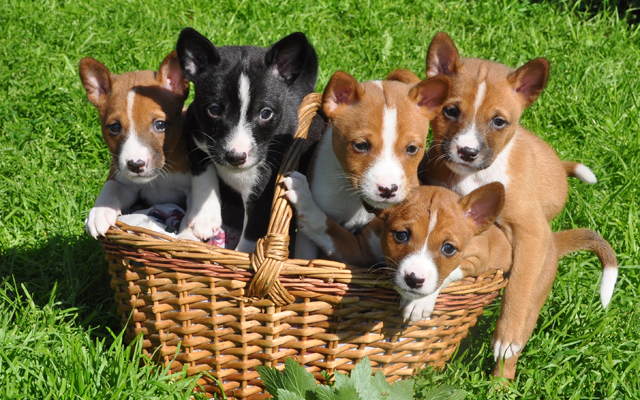
Chestnut red; pure black; tricolor (pure black and chestnut red); or brindle (black stripes on a background of chestnut red), all with white feet, chest and tail tip. May also have a white facial blaze, white legs and/or a white collar.
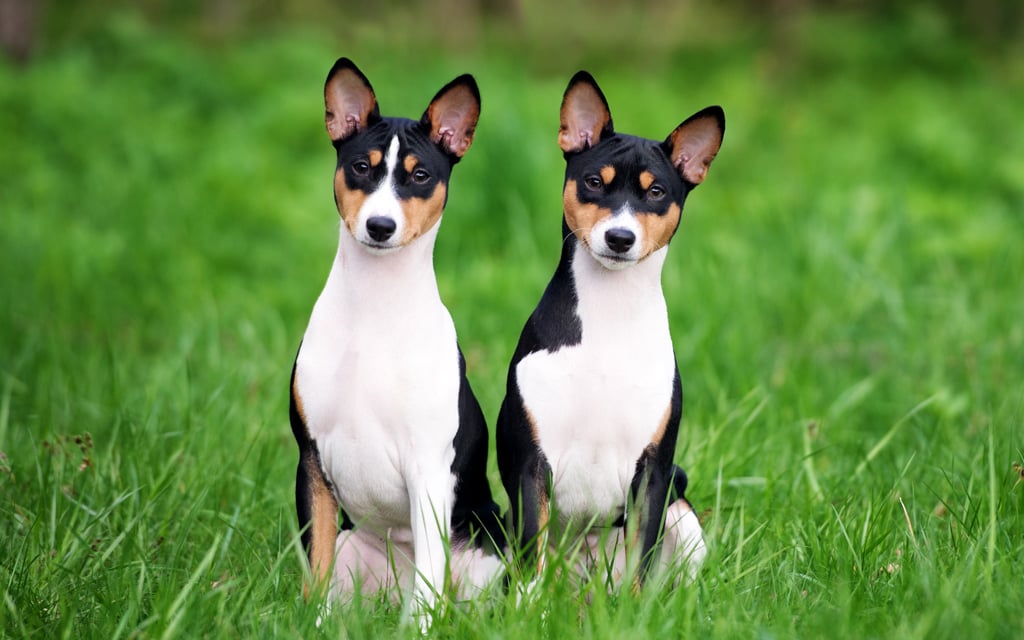
Basenji, nicknamed as the Barkless Dog, is a muscular, elegant and athletic hunting dog from Africa. Its name means “Bush thing” in Swahili. The Basenji hunts by both sight and scent. It is known as the African Barkless dog, the Basenji never barks but does have a lot of other unusual vocalizations.
It may yodel, howl, growl or crow, depending on its mood. The Basenji is roughly the size of a fox terrier. Its tail curls off to one side of its muscular thighs. The breed has a distinctive, trotting horse-like running gait. The Basenji is alert, affectionate, demanding, energetic and curious.
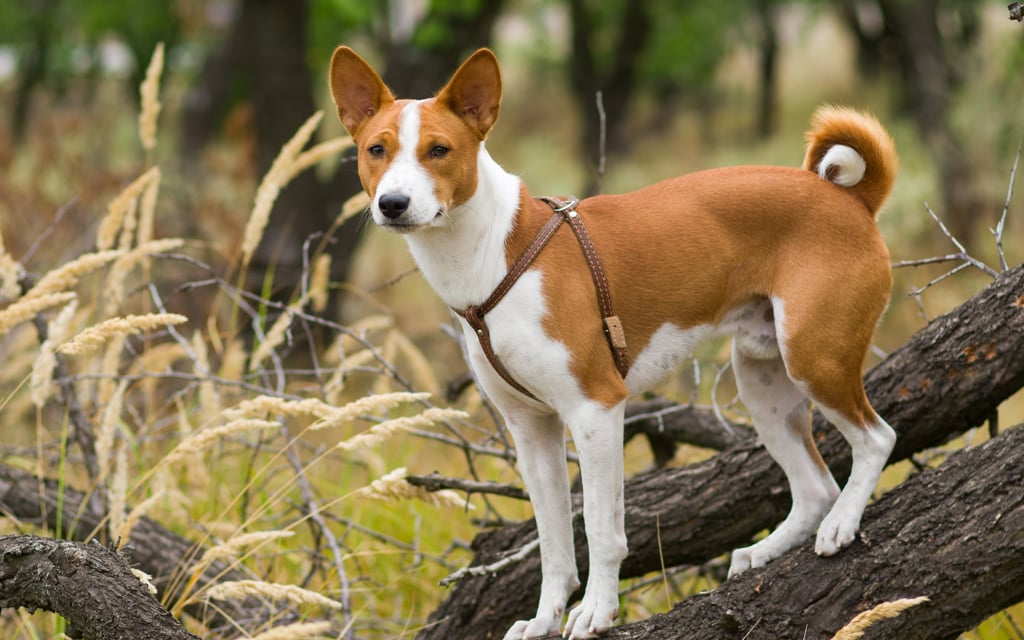
It loves to play and makes a good pet as long as it is handled on a regular basis from an early age. It is elegant and graceful. Its balanced structure and the smooth musculature enable it to move with ease and agility. Unlike most other domestic breeds, which have two heats per year, the female Basenji comes into heat only once a year.
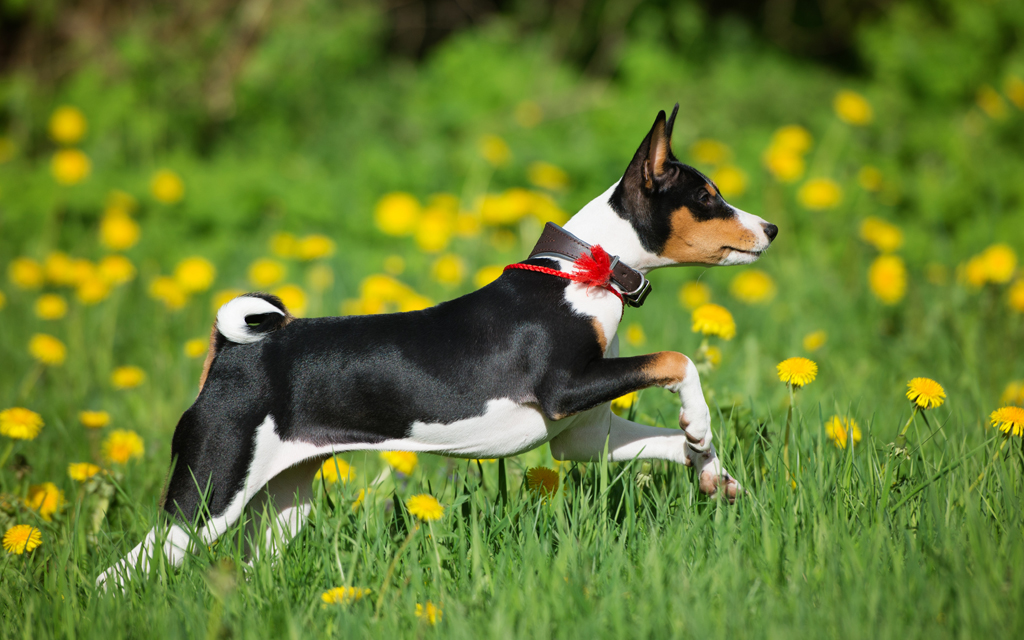
Basenji dogs are extremely intelligent, active and respond well to training with a strong desire to please. This dog breed is usually patient and does best with considerate older children but should not be trusted with non-canine pets. Basenji has a strong urge to please and should be trained from an early age.
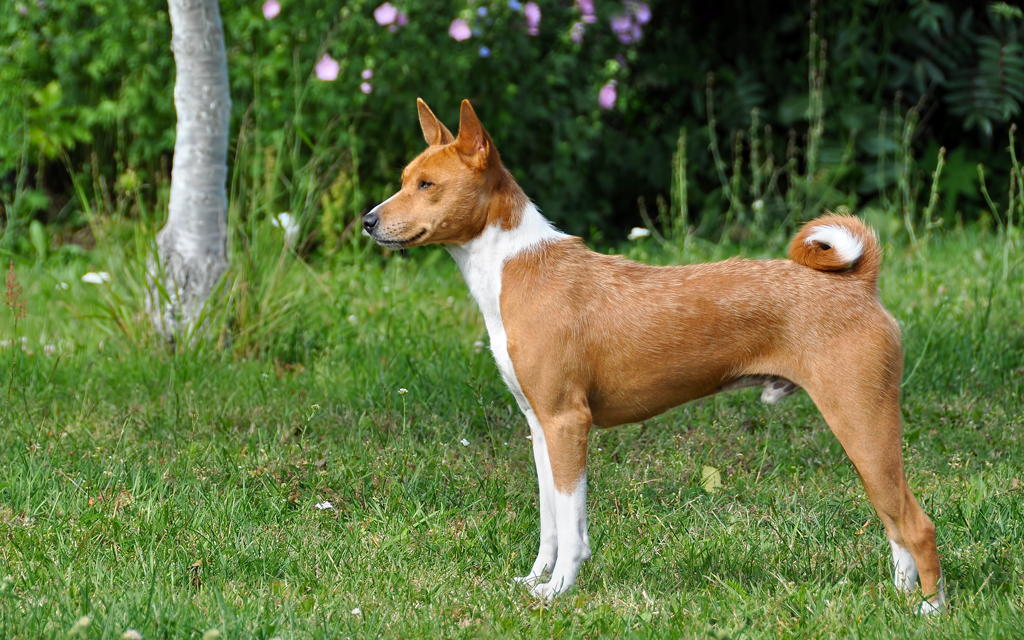
Basenjis can be reserved with strangers, but can also form strong bonds with people. It likes to climb and can easily get over chain wire fences. It tends to chew a lot so requires a lot of toys. It dislikes wet weather. Its strong desire to play can lead to behavior problems if left alone. It has the unique properties of not barking and of cleaning itself like a cat. It can be described as speedy, frisky, and tireless at play and teasing the owner into play.

Chestnut red; pure black; tricolor (pure black and chestnut red); or brindle (black stripes on a background of chestnut red), all with white feet, chest and tail tip. May also have a white facial blaze, white legs and/or a white collar.
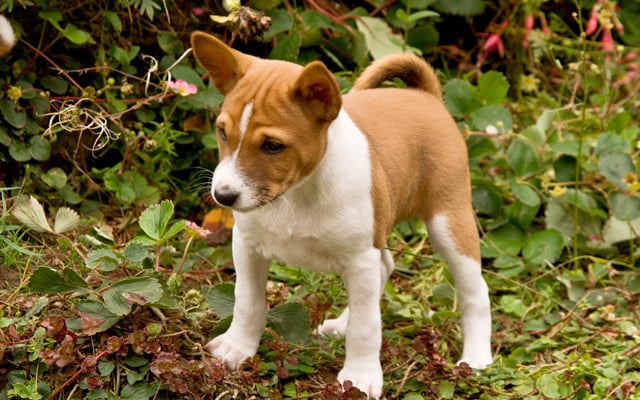
Its coat is short and fine, the skin is very pliant. It is a light shedder and good for people with allergies. Since this breed washes itself like a cat it has no doggie smell.

The Basenji is prone to kidney problems (Fanconi’s syndrome – it must be treated the moment the symptoms are noticed) and eye problems such as progressive retinal atrophy. Ensure your veterinarian gives your dog regular eye checks. To minimize the risk of your Basenji developing any hereditary health issues, you should buy a Basenji puppy from a reputable breeder.
The Basenji requires plenty of exercise or else it will become fat and lazy. They do not make ideal apartment dogs as they bore easy if left on their own. The Basenji is happiest living with a large yard with two or three of its own and they will not fight amongst each other.
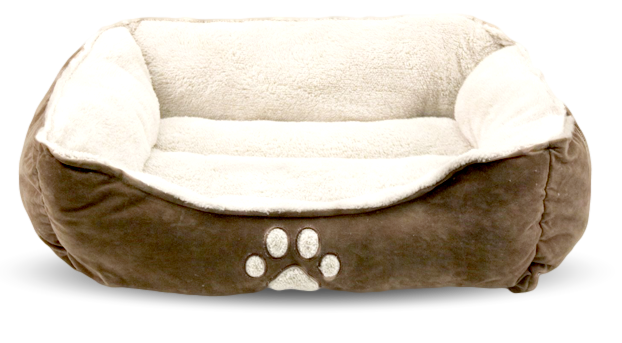
Alerta de perros nuevos por raza
